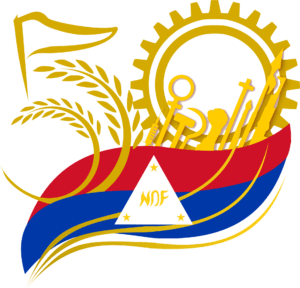PRESS RELEASE
The National Democratic Front of the Philippines (NDFP) today said that a Comprehensive Agreement on Social and Economic Reforms (CASER) is the key to a prolonged ceasefire with the Government of the Republic of the Philippines (GRP).
The NDFP issued the statement as the 60-day time period (August 27 to October 27) to reach an interim bilateral ceasefire nears. The crafting of an interim bilateral ceasefire was agreed upon by both parties during the first round of peace negotiations last August. The second round of negotiations will resume on October 6-10, 2016 in Oslo, Norway.
NDFP consultant Rafael Baylosis, member of the GRP-NDF ceasefire committee, said that “a mutually-satisfactory agreement on the CASER could further pave the way for a bilateral ceasefire.”
“In fact, crafting an agreement on social and economic reforms is the key to a prolonged ceasefire,” Baylosis said.
For his part, NDFP consultant and RWC-SER member Randall Echanis said “the necessary first step to achieving peace and development in the country is addressing the most basic problems of rural Philippines.”
“This includes pervasive poverty, peasant landlessness, heavy indebtedness, severe hunger, malnutrition, and gross inequality in income and wealth distribution,” Echanis said.
“Addressing the root causes first before the silencing of the guns is important in the October Oslo talks,” Echanis said.
The NDFP exchanged with the GRP a proposed “framework and outline” for the Comprehensive Agreement on Social and Economic Reforms, the second substantive agenda of the peace negotiations according to the framework agreement set by The Hague Joint Declaration of 1992.
According to the NDFP proposal, the main CASER objectives are: a) carry out agrarian reform and national industrialization; b) advance the rights of exploited, oppressed, discriminated and disadvantaged sectors of society; c) uphold, protect, defend and promote economic sovereignty; and d) conserve the national patrimony and protect the environment. #
Reference:
NDFP International Information Office
0031302310431

